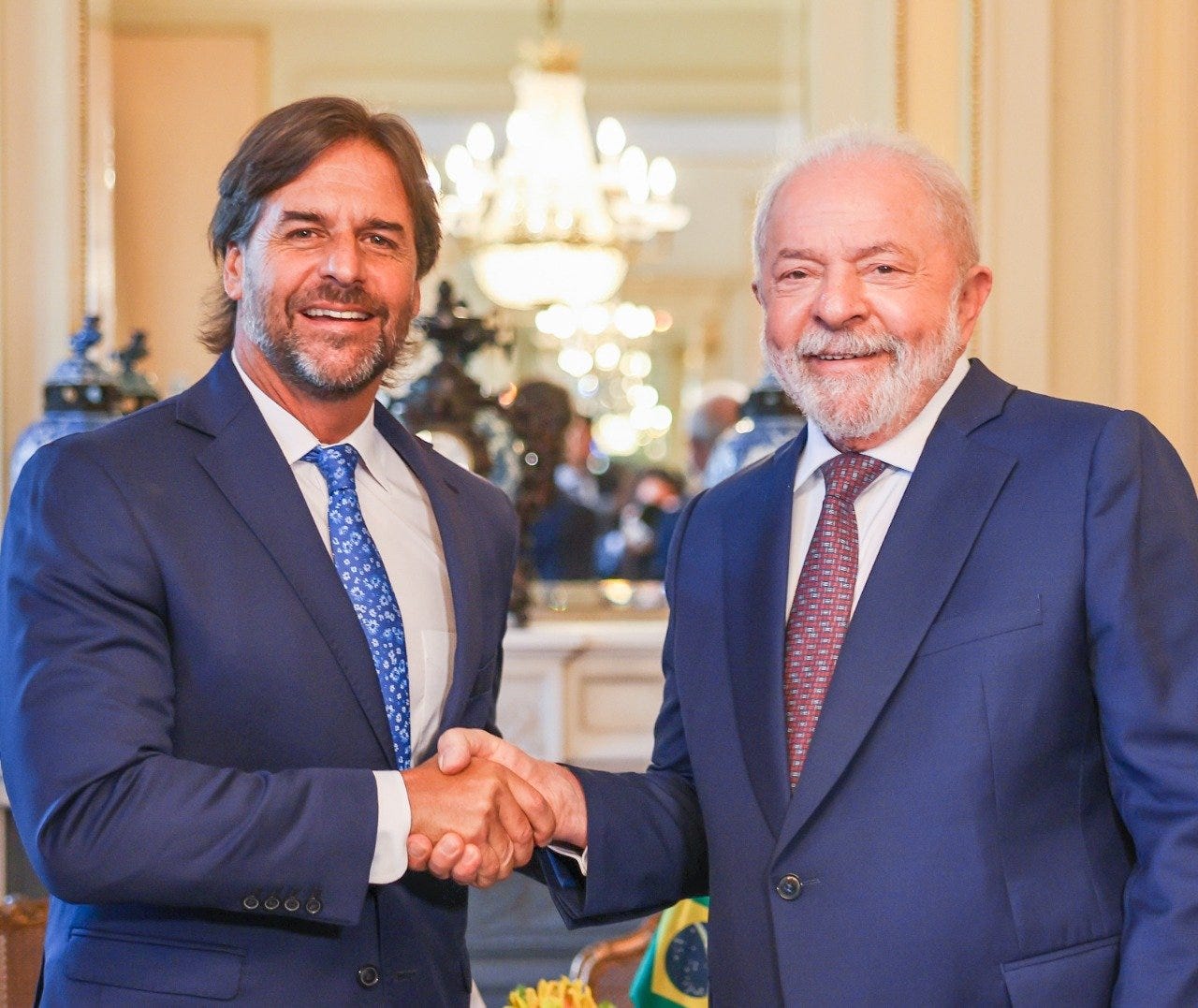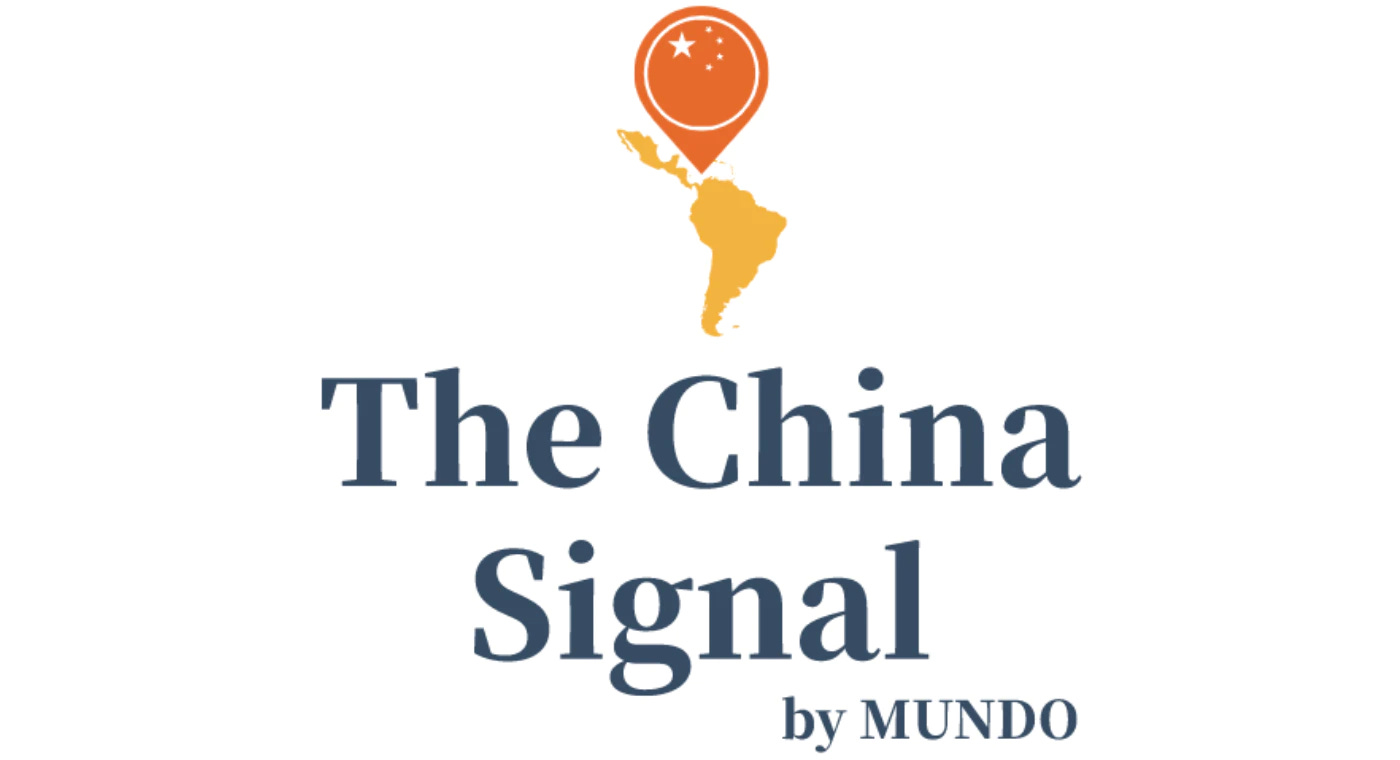The China Signal - January 30
CATL & CMOC to develop Bolivia's lithium mining infrastructure, Suriname expands "Safe City" surveillance
G’day, and welcome to The China Signal. This week, a CATL and CMOC consortium land a $1 billion contract to begin developing Bolivia’s lithium mining infrastructure; Suriname expands its “Safe City” surveillance program, likely with Huawei’s support; PowerChina courts Guyana for future energy projects; Panama awards CAMC Engineering for an electrical transmission line, plus much more. Read on.
Critical Minerals 🔋
Bolivia 🇧🇴
Bolivia taps Chinese battery giant CATL to help develop lithium riches | Reuters - January 20, 2023
The Bolivian government has selected a consortium of Chinese battery maker CATL, mining firm CMOC, and Guangdong Bangpu Cycle Technology, a CATL subsidiary focused on battery recycling, to help develop the country’s vast yet undeveloped lithium reserves. CBC, as the consortium is known, will invest $1 billion in the project’s first stage to develop transport, electrical and other infrastructure around lithium deposits near Bolivia’s Uyuni and Oruro salt flats.
The partnership would give CBC, which also includes mining giant CMOC, rights to develop two lithium plants, which could each produce annually up to 25,000 tonnes of battery-grade lithium carbonate.
Bolivia's iconic salt flats are home to the world's largest lithium resources at 21 million tonnes, according to the U.S. Geological Survey, but the country has almost no industrial production or commercially viable reserves.
[Bolivia’s president Luis Arce] …added that talks were ongoing for potential partnerships with other foreign firms. The companies who have remained in the race include U.S. firm Lilac Solutions, Russia's Uranium One Group and three other Chinese bidders.
These other Chinese bidders likely include CITIC Guoan Group, the China Railway International Group (CRIG) the Xinjiang TBEA Group and Fusion Enertech, who were all named on a shortlist by the Bolivian government in June 2022, alongside the CBC consortium.
CATL is the world's largest EV battery manufacturer but does not currently produce any lithium, although it has invested in a number of Chinese projects. It lost a bid in 2021 to buy out Argentina-focused Millennial Lithium Corp .
Energy minister Franklin Molina said the move showed there were "sovereign alternatives to the privatization models of lithium exploitation." Bolivia state firm YLB is set supervise and take a central role in the project.

A number of factors challenge this project’s success:
YLB doesn’t have a track record for effectiveness. Since its establishment in 2017, YLB is yet to materially increase the country’s lithium extraction. Part of this challenge relates to inefficient extraction methods because of dated technology.
ESG issues. Previous lithium projects near this project’s planned development sites have met resistance from local activists, who demand higher royalties and economic benefits for their communities. The area surrounding Potosí is Bolivia’s dominant mining region, with most of the area’s $2 billion in exports coming from resource extraction. Despite this, the region has one of the country’s highest poverty rates. Protests in Potosí in 2019 scuppered a lithium project under development between German firm ACI Systems and China’s Xinjiang TBEA.
Political sensitivities - Lithium is intrinsically tied with Bolivia’s domestic politics. Former president Evo Morales attributes his overthrow to “foreign interests” vying for Bolivia’s lithium market. This is political scapegoating, of course, but it reflects broader sensitivities over who controls the mineral’s extraction and how its economic benefits are distributed. (MH).
***
Consortium partner CMOC is the world’s largest miner of niobium, a critical mineral used to improve steel strength and corrosion resistance. The mineral has excellent conductive qualities, and is an important component for jets and oil and gas pipelines. CMOC also mines cobalt in Congo, and is subject to a legal dispute with the Congolese government who claim they understated the mine’s cobalt reserves to reduce royalty payments owed to the government.
Surveillance 🔎
Suriname 🇸🇷
China to upgrade CCTV security system in Suriname | Caribbean National Weekly - January 21, 2023
Suriname has signed an agreement with China for the upgrading and expansion of the “Safe City” security camera system…Closed-circuit television (CCTV) surveillance cameras will now be installed in all other districts, with the exception of the Sipaliwini district in the interior of Suriname.
The project will be carried out by experienced technicians from China. The donation of US$15 million will finance, among other things, the installation of equipment and construction of the facilities.
The agreement was signed on Thursday at the Chinese embassy by Minister of Justice and Police Kenneth Amoksi and Chinese Ambassador, Han Jing. The Safe City 3 project is part of the China Aid Road Monitoring Project in Suriname. The Chinese Ambassador said the agreement is a gesture of support to the Surinamese government for increasing public safety.
Although not explicitly stated in the article, it’s likely that this is part of Huawei’s “Safe City” program. According to unverified reporting by The Deerfield Report in October 2020:
In 2018, the Surinamese national telecommunications company Telesur installed the first CCTV cameras in Paramaribo in a partnership with Huawei who manufactured every camera in the Suriname capital. The Safe City project in Suriname is part of the bigger Telesur National Broadband Project (TNBP), led by Telesur, financed by money from China and under the local supervision of Zach Qui, Huawei’s Country Manager in Suriname at the time.
When asked about financing, Suriname officials like to talk about ‘a grant from China’ or ‘a donation from Huawei’ with regards to the Safe City project, but neither China nor Huawei is ‘giving’ anything to Suriname. For TNBP, Telesur has paid a 15% down payment to Huawei. For the other US$97 million, or 85% of the payment, Suriname has taken out a loan with the Exim Bank of China. “The State stands as a guarantor for the loan, but the project is run by Telesur. Therefore we pay the State, Suriname pays the Exim Bank of China and they pay Huawei”, says Hew A Kee.
Read a short CSIS report from 2019 on Huawei’s Safe City program here. (VV)
Energy ⛽️💡
Guyana
Chinese courting Guyana government amid energy build-out - BNamericas - January 23, 2023
Power Construction Corporation of China (Powerchina) has stepped up engagement with authorities in Guyana as the country advances its energy development pipeline.
The South American nation’s Prime Minister Mark Phillips met with a delegation of the Chinese group led by its Caribbean representative Dan Chen.
Powerchina, through Sinohydro, also participated in a request for proposals issued by the government for the 165MW Amaila Falls hydro project, bidding for which is penciled in for this year.
Panama
Chinese firm lands Panama power transmission project - BNamericas - January 23, 2023
Panama’s state power transmission company Etesa has awarded the 55km, 230kV Mata de Nance-Frontera transmission line project in Chiriquí province.
The winner was China CAMC Engineering with an offer of US$35.4mn.
The China National Machinery Industry subsidiary was the sole bidder and will have 540 days to complete the work.
Diplomacy 🤝
Cuba 🇨🇺
China Makes Official Donation of $100 Million to Cuba | teleSUR - January 18, 2023
On Wednesday 18 January, Cuba's ambassador to China, Carlos Pereira, and the vice-president of the China International Development Cooperation Agency, Tang Wenhong, signed a cooperation agreement formalizing the donation of 100 million dollars.
According to the official, the donation "will be destined to the execution of projects of high social impact." Pereira said it is ratification "of China's strategic participation in our economic and social development plans."
The two leaders met to formalize the donation that had been granted in early November 2022 when Cuban President Miguel Díaz-Canel visited China. (VV)

Trade 📊
Mercosur 🇦🇷🇧🇷🇵🇾🇺🇾
Brazil's Lula proposes Mercosur trade deal with China after EU accord | Reuters | January 25, 2023
On January 25, Brazilian President Luiz Inacio Lula da Silva said that he favored an agreement between Mercosur and China in a plan to modernize and open the South American trade bloc to other regions.
On a visit to Uruguay to dissuade its government from reaching a deal on its own with China, which would undermine the Mercosur customs union, Lula said the long-awaited Mercosur accord with the European Union must be completed urgently.
"Let's intensify the talks and firm up this agreement (with the EU) so that we can then discuss a possible agreement between China and Mercosur and I think it is possible," said the leftist president who took office again on Jan. 1.
Last year Uruguay entered into formal trade negotiations with China, which was criticized by other Mercosur members (for further background see TCS December 17, TCS July 26, and TCS March 11 2022).
"We are going to create a technical team with Uruguay, Brazil and no doubt the other countries to see what we really want and need from our relationship with China," Uruguay’s President Lacalle Pou said. (RP)

Agriculture 🌾
Brazil 🇧🇷
Brazil's Centro de Tecnologia Canavieira (CTC) expects its home country to accelerate the adoption of its genetically modified (GM) sugarcane after China approved imports of two varieties, CTC told Reuters on Tuesday 17.
The varieties, CTC20Bt and CTC9001Bt, are resistant to stem-boring insects, a pest that causes annual losses of 5 billion reais (US$979 million) for the industry.
"The approval of this variety by China, which recognizes its safety in an important market, will accelerate its adoption," said CTC in a statement. The firm had already obtained some authorizations for its GM sugarcane technology in other markets.
Brazil, the world’s largest overall sugar producer and exporter, provides the majority of China’s sugar imports. China accounted for around 45% of Brazil’s 2022 US$62.3 billion trade surplus, down from two-thirds in 2021. (RP)






